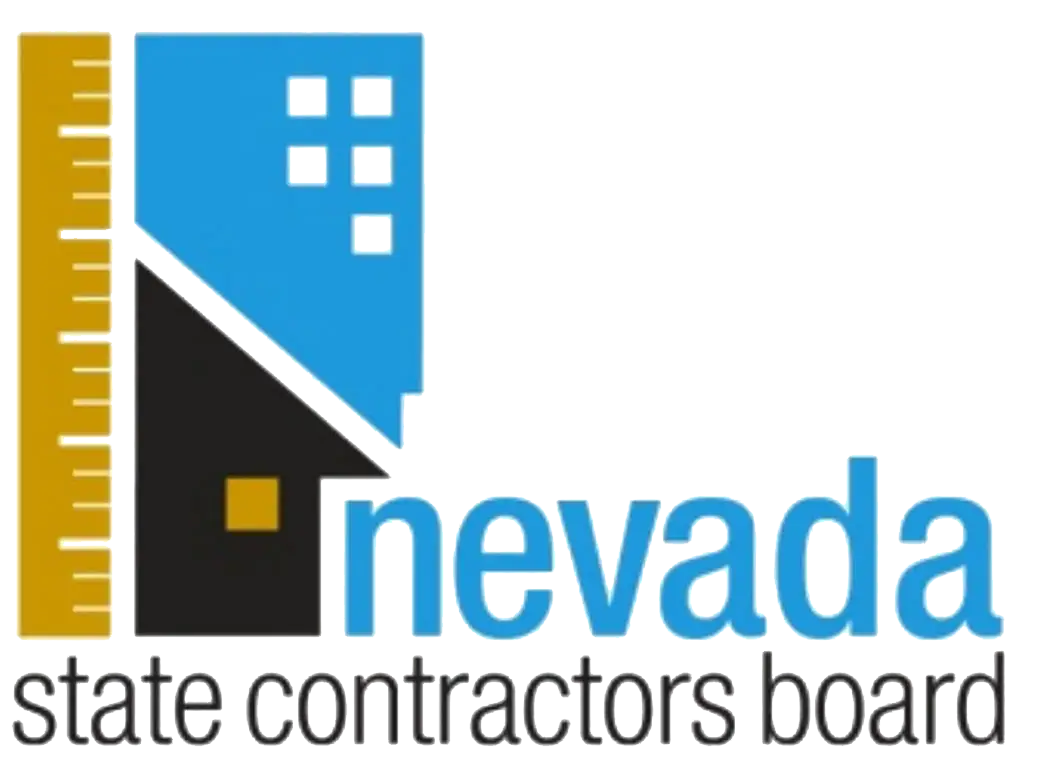MISSION STATEMENT

FUNCTION
The Board’s role and responsibilities encompass several key areas:
- Licensing Qualifications: The Board determines the qualifications of applicants before licensing, including written examinations, background investigations, and financial responsibility assessments.
- Licensing Conditions: The Board sets conditions for licenses, such as field and scope limitations, bond requirements, and contractual limits.
- Regulatory Rules: The Board is empowered to promulgate rules and regulations for implementing and enforcing the enabling statute, NRS 624.
- Discipline: The Board takes action against licensees found in violation of the statute, which may include penalties, suspensions, or license revocations.
Licensure
The procedure for determining applicant qualifications relating to licensure are contained in NRS 624.250 through 624.270. Qualification for a contractors license is determined by written management and trade examinations, extensive and detailed investigation of the applicant’s qualifications, background, ability, experience, competence, general character and established proof of financial responsibility. The process provides some assurance to the Board and to the public that a licensee is competent and qualified at the time of initial licensure. Financial responsibility is determined using standards and criteria set forth by law, which include:
Net worth, amount of liquid assets, prior payment and credit records, previous business experience, prior and pending lawsuits, prior and pending liens, adverse judgments, conviction of a felony or crime involving moral turpitude, prior suspension or revocation of a contractors license in Nevada or elsewhere, an adjudication of bankruptcy or any other proceeding under the federal bankruptcy laws, form of business organization, information obtained from confidential financial references and credit reports, and reputation for honesty and integrity of the applicant.
Licensee Complaints and Investigations
Upon receipt of a complaint or a request for an investigation, the Board has the authority to investigate the actions of persons who are licensed contractors and persons contracting without a license. If an investigation reveals a violation of the law pertaining to the jurisdiction of the Board, NRS 624, formal charges may be filed. Investigations and disciplinary proceedings must be conducted in compliance with the law. The Board must follow legal standards and requirements applicable to investigations and disciplinary proceedings and actions. The Board has the authority to investigate persons contracting without a license, and may issue a citation to the unlicensed person requesting a court appearance and imposing a fine. Prosecution of unlicensed contracting cases is pursued through the court system.
Disciplinary Proceedings
It is the role of the Board to hear arguments on relevant issues during the formal hearing. All testimony is to be made under oath. Upon conclusion of the hearing, the Board or its designated hearing officer, determines the facts, and in accordance with the applicable laws and regulations, make a just decision.
The Board must decide to impose to reject a penalty or disciplinary action against the licensee as deemed appropriate. The most serious penalty that the Nevada State Contractors Board can impose is to revoke the contractors license. Other disciplinary action may include a letter or reprimand, license suspension, imposition of a fine up to $10,000 per violation, order of correction, probation, place limitations on the scope or monetary limit of the license, or other action.

